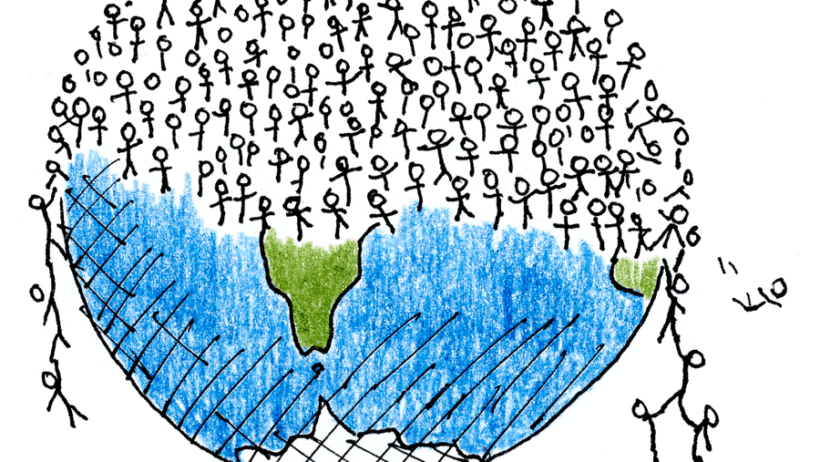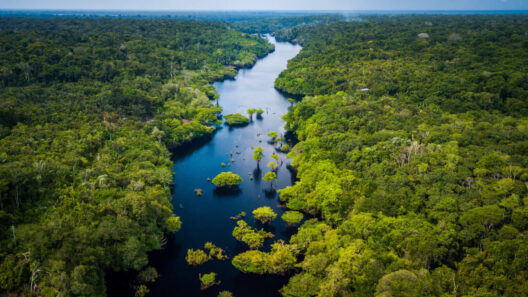Global warming stands as one of the most pressing issues of our time, engendering profound ramifications for the environment and human society. The phenomenon, characterized by an inexorable rise in atmospheric temperatures primarily due to anthropogenic activities, exerts a multifaceted influence that is both local and global in nature. One cannot underestimate the pervasive reality of this crisis, as it compresses the delicate balance of our ecosystems and alters climatic patterns that have persisted for millennia.
At its core, global warming results from the cumulative increase in greenhouse gases (GHGs), notably carbon dioxide (CO2) and methane (CH4), released by industries, transportation, and deforestation. These gases create a thickening mantle around the Earth, trapping heat and prompting a cascade of environmental changes. The ramifications of this warming are not merely theoretical; they are felt acutely across diverse locales, signaling an urgent need for concerted action.
One immediate manifestation of global warming is the alteration in weather patterns. Regions traditionally characterized by regular seasonal cycles are witnessing unprecedented deviations. For instance, the frequency of extreme weather events such as hurricanes, droughts, and floods is escalating, wreaking havoc on local communities and ecosystems. Areas once immune to the brunt of natural disasters are now confronting meteorological anomalies, challenging their resilience and exacerbating socio-economic vulnerabilities.
Moreover, the impact of global warming transcends mere weather; it dramatically influences biodiversity. Ecosystems are under siege, with flora and fauna struggling to adapt to the rapidly shifting climate. Coral reefs, often dubbed the rainforests of the ocean, exemplify this crisis. Rising sea temperatures have precipitated widespread coral bleaching, compromising the myriad species dependent on these vibrant ecosystems. The loss of biodiversity not only threatens nature but also the very foundation of human survival—food security, clean water, and medicinal resources.
In parallel, the phenomenon of melting polar ice caps serves as a harbinger of global change. The Arctic and Antarctic regions, once considered remote and untouched, are now pivotal players in the global warming narrative. The accelerated melting of ice contributes to rising sea levels, which pose an existential threat to coastal communities around the world. Countries with low-lying geography, such as Bangladesh and the Maldives, stand on the frontline, facing the stark reality of displacement and loss of habitat.
Addressing the duality of local and global impacts necessitates a robust understanding of the socio-economic variables at play. Communities reliant on agriculture are particularly vulnerable. Erratic rainfall patterns and shifting climate zones jeopardize traditional farming practices, leading to diminished crop yields. Consequently, food insecurity looms larger, as global market distributions become increasingly strained under the weight of localized failures. The ripple effect can extend into geopolitical realms, where competition for scarce resources drives conflict and exacerbates humanitarian crises.
Furthermore, urban areas, often characterized by dense populations and industrial activity, experience unique challenges. The urban heat island effect exacerbates the impacts of global warming, leading to elevated temperatures in metropolitan regions. Consequent health issues, such as respiratory ailments and heat-related illnesses, disproportionately affect marginalized communities, amplifying existing inequities. The convergence of environmental decline and social justice mandates a reevaluation of urban planning and development strategies.
The path to mitigation hinges on collective awareness and action. Breaking the inertia surrounding climate change requires a paradigm shift—one that encompasses both individual and systemic transformations. This effort should embrace renewable energy adoption, sustainable practices in agriculture, and comprehensive public policies aimed at reducing carbon footprints. Equally crucial is the global commitment to education, fostering a generation equipped with the knowledge and tools necessary to confront looming environmental challenges.
In this regard, the role of international cooperation cannot be overstated. Global warming is inherently a transboundary issue, one that regards national borders as arbitrary in its pursuit of equilibrium. International agreements, such as the Paris Agreement, represent crucial endeavors to unify nations in combating climate change. Though progress has been made, the commitments must evolve and intensify—adopting more ambitious targets to achieve meaningful impact.
Community engagement also plays an indispensable role in addressing global warming. Local initiatives that emphasize conservation, reforestation, and sustainable resource management empower individuals to contribute substantively to the larger narrative. Grassroots movements can galvanize collective action, stimulating widespread dialogue and prompting shifts in policy priorities at local and national levels.
Moreover, technology emerges as a powerful ally in our quest for solutions. Innovations in carbon capture and storage, renewable energy technologies, and sustainable agriculture practices hold promise for mitigating the adverse impacts of climate change. Research and development investments in these areas can unlock pathways toward a sustainable future, reinforcing the imperative of prioritizing environmental stewardship in all facets of economic growth.
In conclusion, global warming exerts tremendous pressure on our environment, permeating local ecosystems and altering global landscapes. Its ramifications are complex and interwoven, demanding a multifaceted response that encompasses individual responsibility, systemic change, and international collaboration. Humanity stands at a critical juncture, faced with the choice to either embrace proactive engagement or surrender to the perils of inaction. The future of our planet hinges on our collective resolve to safeguard the environment for generations yet to come.








